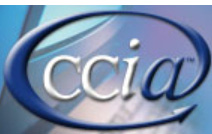 MELBOURNE, AUSTRALIA. At this week’s Melbourne round of TPP negotiations, the Computers and Communications Industry Association (CCIA) — representing tech companies like Google, Facebook, E-Bay and Yahoo — has been circulating a new proposal for adding copyright limitations and exceptions to “permit the smooth functioning of the Internet.” It is incredibly well researched and supported and includes some good ideas. My favorite among them is a proposal for mandatory flexible limitations and exceptions to copyright in every system:
MELBOURNE, AUSTRALIA. At this week’s Melbourne round of TPP negotiations, the Computers and Communications Industry Association (CCIA) — representing tech companies like Google, Facebook, E-Bay and Yahoo — has been circulating a new proposal for adding copyright limitations and exceptions to “permit the smooth functioning of the Internet.” It is incredibly well researched and supported and includes some good ideas. My favorite among them is a proposal for mandatory flexible limitations and exceptions to copyright in every system:
“Such exceptions and limitations shall permit the utilization of works and other subject-matter to the extent justified by the purpose of free expression (including commentary, criticism, and news reporting), participation in the cultural life of the community, transformative use, teaching, research, scholarship, personal use, and the functioning of, and innovation in, the digital environment, provided that such utilization is consistent with fair practice.”
This provision is carefully crafted to look very similar to many exceptions that one can see in almost any copyright law. But by including broad ends such as “free expression,” “transformative use” and “innovation in the digital environment” as potential triggers for exceptions, it would allow (indeed require) exceptions in other countries to have the best feature of U.S.-style “fair use” — which is its ready adaptability to changing technologies and circumstances without requiring changes in statutory law.
The lack of such flexibility is a real problem in many countries with “closed list” systems with specifically enumerated, and often very narrow, limitations. PIJIP and the Institute on Information Law (IVIR) in Amsterdam hosted a recent workshop where we reviewed the laws of 14 countries from around the world and found that nearly every one of them lacked exceptions that could be interpreted to allow important modern digital activities, such as the making available of digital copies of library collections and the creation and dissemination of user-generated content that transforms copyrighted work (see, e.g., guitar baby videos). The subject was also discussed in the inaugural Global Congress on and the Public Interest, whose Washington Declaration on Intellectual Property and the Public Interest called for “discussion of employing ‘open-ended’ limitations in national copyright legislation, in addition to specific exceptions.”
It is good to see the technology community moving the ball on this important issue.




